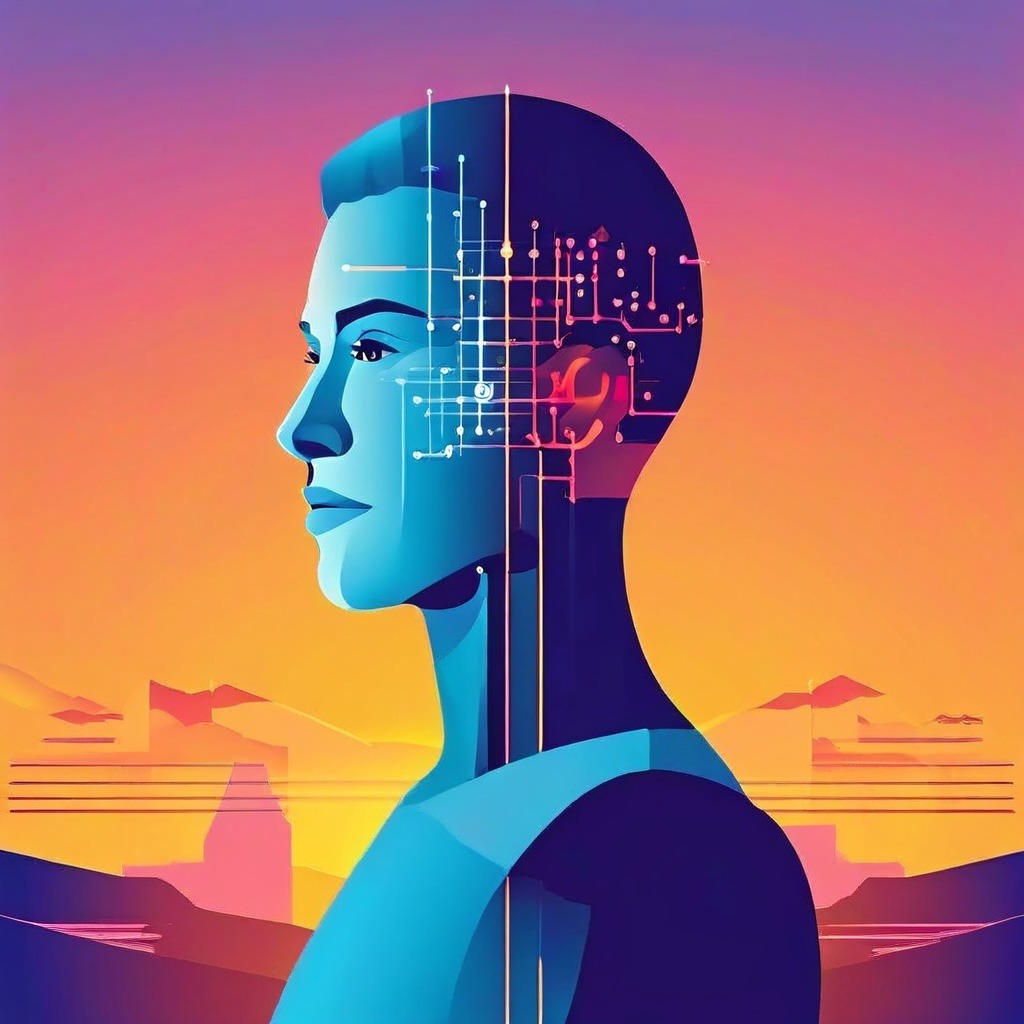Introduction: The Future of Artificial Intelligence
In this blog post, we will be discussing a transcript from a conversation with Jensen Huang, the CEO of the pioneering company Nvidia, in both the technology and artificial intelligence spaces. The discussion revolves around the current state of artificial intelligence, its potential, and the importance of education and infrastructure in harnessing its power. Let’s dive in!
The Beginning of a New Industrial Revolution
Huang talks about the two simultaneous transitions happening in the field of artificial intelligence: the end of general-purpose computing and the beginning of accelerated computing. He emphasizes the need for specialized domain-specific acceleration, as it is more energy-efficient and cost-effective. This transition is driving the growth of accelerated computing, which lays the foundation for the next generation of AI applications.
The Role of Infrastructure in AI Deployment
Huang discusses the importance of building infrastructure to support the deployment of artificial intelligence. He mentions that over the next few years, there will be a significant investment in data centers, all of which will be accelerated. This architecture for accelerated computing is ideal for generative AI, and he encourages government leaders to plan and invest in this infrastructure to harness the potential of AI.
Democratizing AI and Closing the Technology Divide
Huang stresses the importance of democratizing AI and making it accessible to everyone. He believes that the technology divide has been closed, and now every country and individual can take advantage of AI. He mentions that NVIDIA GPUs are widely available and accessible, enabling researchers across the globe to innovate and create the next generation of AI models.
Regulating AI and Ensuring Safety
While discussing the need for regulations around AI, Huang highlights that the focus should be on regulating specific use cases rather than trying to regulate the entire field of computer science or electricity. He acknowledges that safety is crucial when developing and applying new technologies, and regulations should be extended to consider artificial intelligence. He also cautions against fear-mongering and encourages the activation of AI researchers worldwide to join the AI advancement.
The Importance of Open Source Systems and Education
Huang and the interviewer discuss the significance of open-source systems in advancing AI and making it accessible to a wider audience. They also touch upon the topic of education and the skills required in the AI era. Huang suggests that rather than focusing on programming, individuals should understand and utilize the power of computing technology. He emphasizes the importance of upskilling everyone and believes that the understanding of biology and digital biology will be valuable in the future.
Conclusion: An Era of Discovery and Possibilities
In conclusion, the conversation with Jensen Huang highlights the immense potential of artificial intelligence and the importance of infrastructure, education, and regulation in harnessing its power. It is a time of great opportunity, where every country and individual can actively participate in the AI revolution. With the democratization of AI and the closing of the technology divide, we are entering an era of discovery and possibilities, where AI can be harnessed to solve complex problems and reshape the world.
To summarize the key points discussed:
- AI and the Future of Computing: Huang discusses the shift from general-purpose computing to specialized, accelerated computing, driven by the need for more energy-efficient and cost-effective solutions. He highlights this transition as essential for enabling AI applications.
- Advancements in Computing: Over the past 60 years, there has been significant progress in computing, particularly in the last decade with a million-fold improvement in AI capabilities. Huang emphasizes this rapid advancement as pivotal for meeting future demands.
- Democratization of AI: Huang argues that Nvidia has played a key role in democratizing high-performance computing, making it accessible to researchers worldwide. This democratization is seen as crucial for ensuring widespread access to AI technology.
- The Concept of Sovereign AI: Huang stresses the importance of countries owning their data and developing their national AI capabilities. This approach, termed “Sovereign AI,” is seen as vital for maintaining control over a nation’s cultural and societal intelligence.
- Infrastructure for AI: To leverage AI, countries must build the necessary infrastructure, similar to how infrastructure for agriculture, energy, and the internet were built. This infrastructure is not prohibitively expensive or complex and is within the reach of most nations.
- AI and Inequality: There is a concern about the divide between countries that can afford advanced AI technologies and those that cannot. However, Huang believes that the rapid advancement and cost reduction in AI technologies can help bridge this gap.
- Regulation of AI: The conversation also touches on the regulation of AI. Huang points out that AI, like other technologies, needs to be developed, applied, and used safely. Regulation should focus on specific use cases rather than the technology as a whole.
- Open Source AI Models: Huang highlights the importance of open-source AI models, which have spurred innovation and democratized access to AI technologies.
- Future of AI Hardware: While discussing the future of AI hardware, Huang notes that Nvidia GPUs are widely used because of their availability and flexibility across various platforms and applications.
- Education and AI: Contrary to the popular belief that everyone should learn programming, Huang argues that AI technology should be developed so that programming becomes accessible to all, making “everyone a programmer.”
- Career Advice in the AI Era: For those starting their education, Huang suggests focusing on life sciences, predicting a shift from life sciences being a field of discovery to a field of engineering, enabled by advancements in AI and digital biology.





